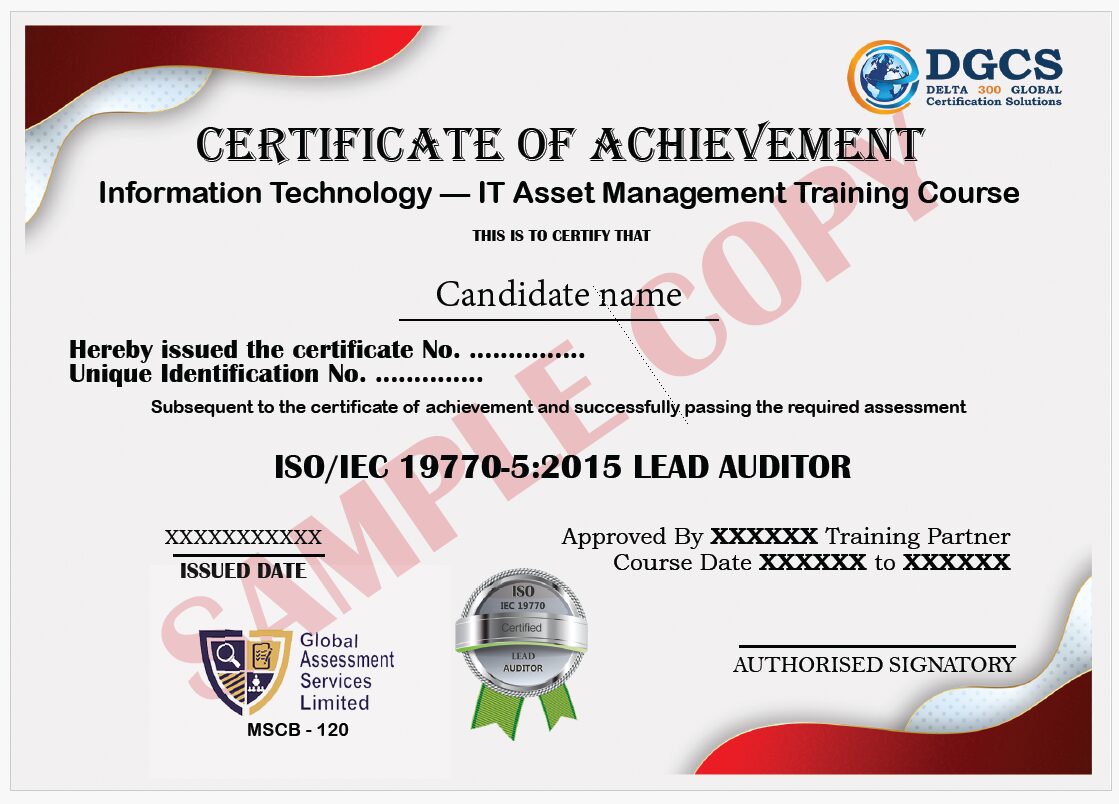ISO/IEC 19770-1:2017 is a global standard for software asset management (SAM), designed to help organizations efficiently manage software assets, ensuring compliance, optimizing software usage, and reducing risks associated with software licensing. The standard focuses on providing organizations with a framework to establish and maintain a robust SAM program, offering best practices for managing software throughout its lifecycle.
The Lead Auditor Certification related to ISO/IEC 19770-1:2017 is a professional qualification granted to individuals who successfully complete a training program that educates them on auditing the implementation and adherence to the ISO/IEC 19770-1 standard. Certified Lead Auditors are skilled in conducting audits and assessments to ensure an organization’s SAM processes align with the standard’s requirements.
The certification typically involves both theoretical and practical components, which include understanding the standard, auditing techniques, and how to evaluate SAM processes within an organization.
Benefits of ISO/IEC 19770-1:2017 Lead Auditor Certification
Enhanced Credibility and Expertise
Achieving this certification demonstrates a high level of knowledge and expertise in software asset management. Certified Lead Auditors are seen as credible professionals who can effectively assess an organization’s adherence to ISO/IEC 19770-1:2017.Improved Organizational Compliance
Certified Lead Auditors help organizations ensure they meet regulatory and legal requirements regarding software usage, licensing, and distribution. This reduces the risk of non-compliance penalties, legal issues, and reputational damage.Optimized Software Asset Management
With a certified Lead Auditor overseeing the audit process, organizations can identify inefficiencies, optimize software licensing, reduce waste, and ensure that they are using only the software they need. This can lead to significant cost savings.Risk Management
The certification equips professionals to identify potential risks related to software licensing, usage, and security. By evaluating these risks, a Lead Auditor can help mitigate potential financial and operational consequences.Career Advancement
For individuals, becoming a certified Lead Auditor enhances career prospects. It opens up opportunities for roles such as internal auditors, external auditors, SAM consultants, or managers within organizations focused on improving their software asset management.Global Recognition
ISO/IEC 19770-1:2017 is recognized internationally, and certification as a Lead Auditor allows individuals and organizations to align with a globally recognized standard, gaining a competitive edge in the market.Continuous Improvement
Lead Auditors are trained to focus on continual improvement, which means they are well-equipped to identify areas for growth in an organization’s SAM practices. This ensures that processes evolve and adapt to changing business needs and technology environments.Support for Organizational Growth
Implementing ISO/IEC 19770-1:2017 under the guidance of a certified Lead Auditor supports scalability, as businesses grow and expand. Proper software management processes are essential for large organizations handling vast amounts of software.
In conclusion, the ISO/IEC 19770-1:2017 Lead Auditor Certification not only benefits the individuals who gain the certification but also plays a crucial role in enhancing an organization’s software asset management strategy, ensuring compliance, optimizing resources, and reducing risks.




